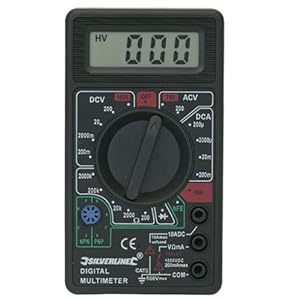I got one from ebay, I looked for one with a temperature probe and also a high current measurement (50 amp or something) as I was doing lots of electrics in my campervan at the time.
In hindsight, I would recommend to go for one which turns on via the dial. Mine came in a soft bag and has three push buttons for on/off, backlight and hold. So whenever it gets taken out of the toolbox/door pocket etc, its either turned itself on and is flat, meaning I need to find a 9v battery and a silly small screwdriver, or I knock the hold button whilst using it and then get confused when I have no continuity (as it remembers the last result on the screen)

